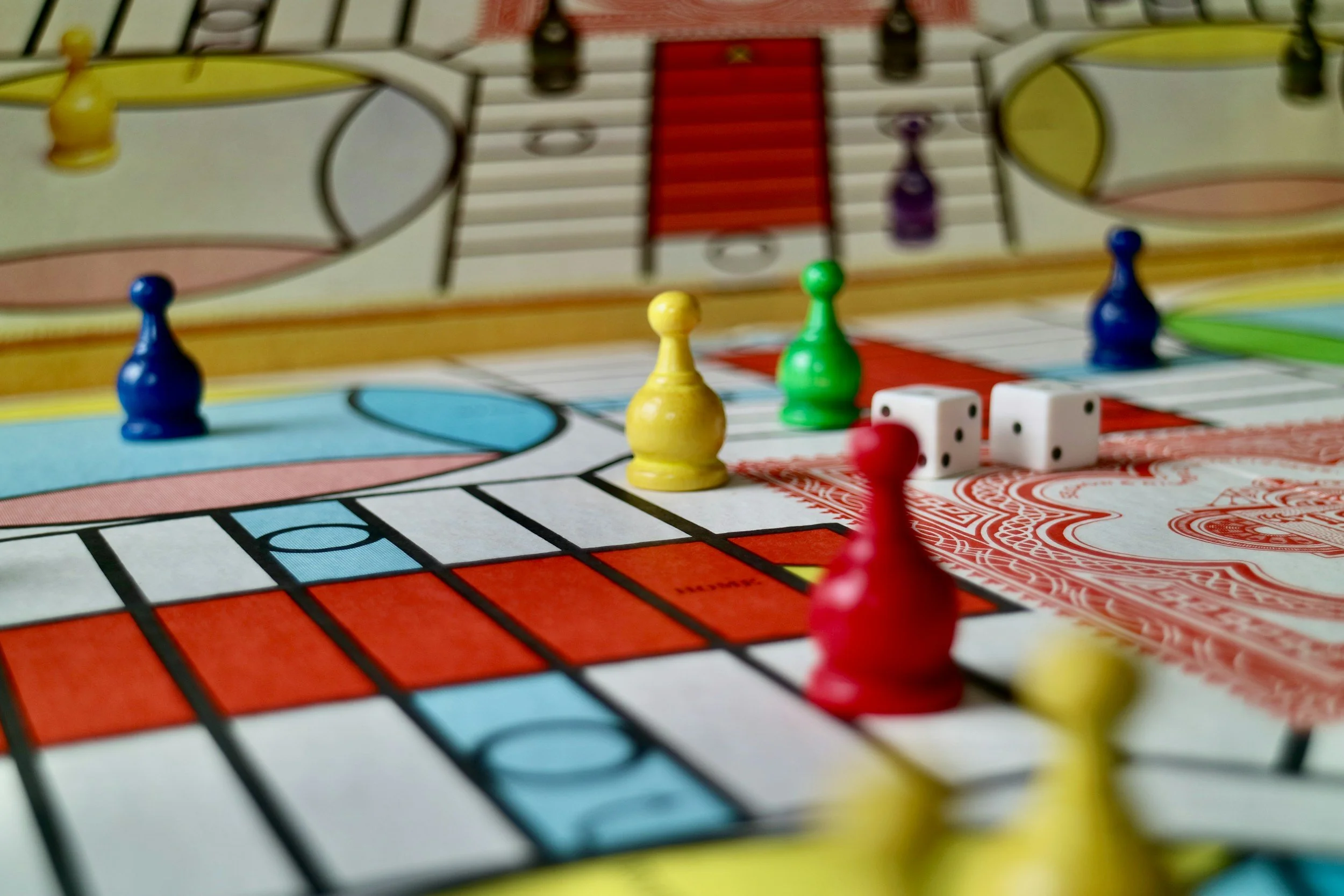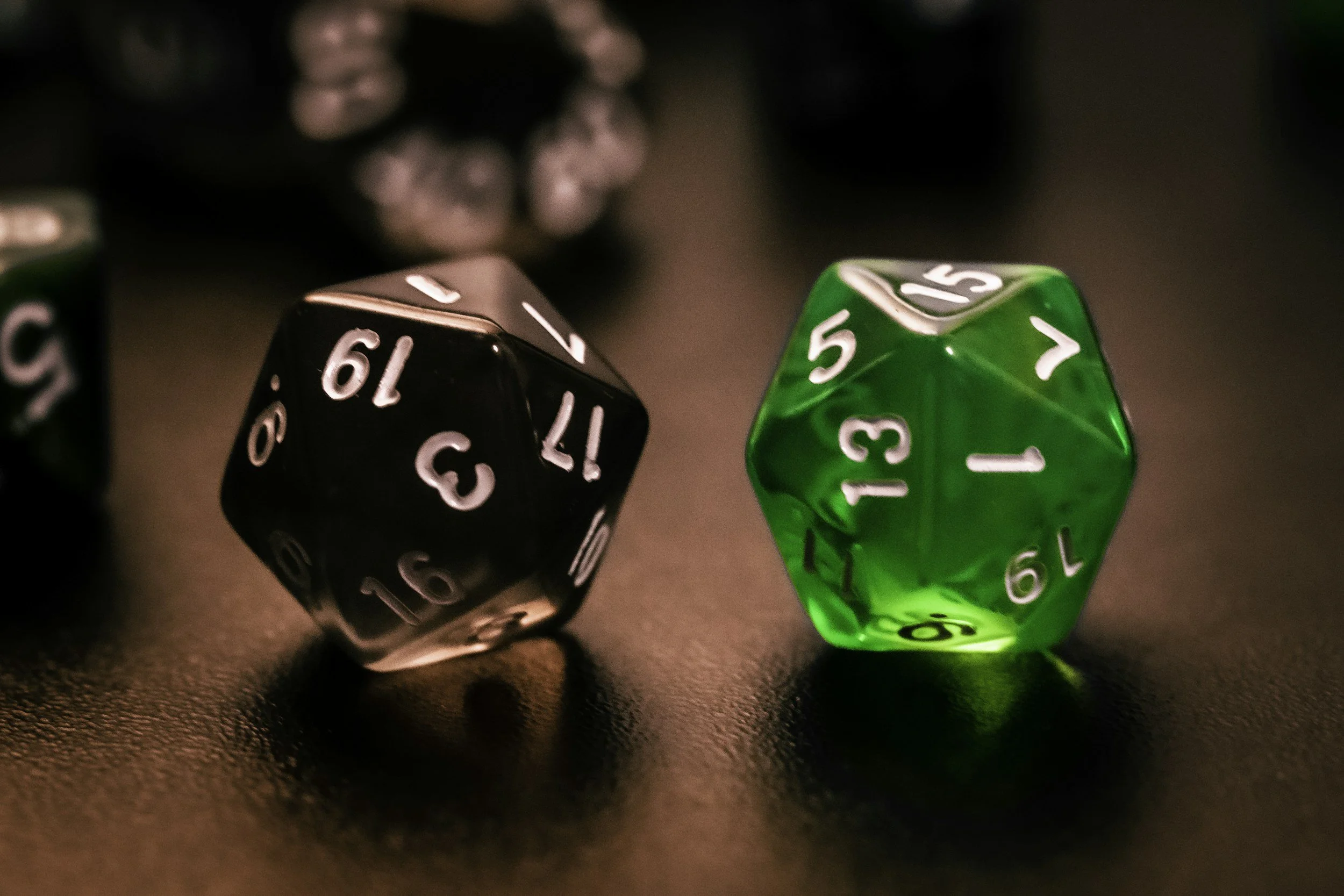Why Playing Games With Your Kids Matters More Than You Think
By Bill M.
I’ve been in the game industry long enough to know how easy it is to treat games as “their” thing—the stuff our kids do while we answer emails, cook dinner, or finally get a moment to ourselves.
But if you’re a parent—especially a parent of a neurodiverse kid—playing games with them is one of the most powerful things you can do for your relationship, your understanding of them, and their self-confidence.
And I don’t mean just watching. I mean joining in. Rolling the dice. Picking a silly avatar. Groaning when you lose to a ten-year-old who clearly stacked the deck.
Shared Play Is Shared Language
When you sit down to play a board game, a card game, or a videogame together, you’re not just filling time—you’re building a common vocabulary.
If your kid has trouble talking about their day, they might still light up explaining why they used a certain card in Uno, or why they think that one boss in Zelda is secretly the good guy. Those moments become little “bridges” you can walk across later when you need to talk about harder things.
For neurodiverse kids, these bridges are gold. Social scripts can be tricky in real life, but in games, the rules are visible, the boundaries are clear, and everyone is starting from the same rulebook.
Modeling How to Lose (and Win)
We all know games teach skills—but when you play together, they also teach you.
You get to model resilience when you lose. You get to model sportsmanship when you win. You can narrate your thinking (“I’m stuck, so I’m going to try a new strategy”) so they hear that problem-solving is a process, not a personality trait.
For neurodiverse kids who may already feel like the rules of everyday life are stacked against them, seeing a parent handle both setbacks and successes with humor and grace is huge.
There is also the power of sitting around the table with other people and negotiating, cooperating and competing. Team sports offer similar components but some of us are much more likely to play with d20s than play D1. And there are even eSports college scholarships. (!)
Why Your Presence Matters More Than Your Skill
It doesn’t matter if you’re bad at Mario Kart. It doesn’t matter if you can’t remember how many cards you’re supposed to draw in Exploding Kittens.
What matters is that your kid sees you choosing to be in their world, not just pulling them into yours.
Because here’s the thing: neurodiverse kids spend a lot of their energy adapting to the systems around them—school, social rules, sensory environments. When you step into their chosen space and follow their rules for a while, you’re telling them:
“Your world matters. Your rules matter. You matter.”
Making Time in a Busy Life
You don’t need marathon sessions. Fifteen minutes of a quick card game before bed. One round of a party game after dinner. A single boss fight together before homework.
Consistency beats quantity. Those small, repeatable moments create a steady rhythm of connection.
You Get to See Your Kid Be Awesome (and Funny)
A watershed moment for every gamer parent is that point where your kid starts beating you for real at games you thought you were good at. A bittersweet moment but one that builds your relationship with each other as people, where you can admire your kid’s skills and strategies (resist the temptation to tip the board and never play Diplomacy). Gaming also offers absolutely spectacular opportunities for everyone to be funny and having your kid tease you (appropriately) is a good feeling and a good skill for them to develop. It’s also fun to lay down the smack to remind kids that we all also played videogames and boardgames- 13 year olds don’t like losing to 55 year olds at Mario Kart.
Just Play
Play with your kids. Not because it’s educational (though it is). Not because it’s “quality time” (though it’s that too). Not even because it’s FUN.
Play because in a world that often tells them to “catch up” or “fit in,” games can be the rare place where you meet in the middle—and you both get to belong.
A Quick Note on Dungeons & Dragons
Dungeons and Dragons may be very familiar to older nerds or it may seem quite bizarre to less dorky parents. I may write a separate blog post going into more detail, but I’ve been the dungeon master for my kid and friends for the last 3 years and it has been an absolutely fascinating way to connect- I see my kid interact in a way not otherwise possible and have developed very strong relationships with the other kids- we’ve eaten a lot of junk food and had a lot of laughs but D&D is ultimately about people coming together to tell each other a series of stories and kids get the chance to express themselves creatively as well as playing a game. Seeing a kid come up with a clever solution, great drawing, funny line or even creating an entire campaign is special and very accessible.
If you don’t know much about D&D, watch some youtube videos and get a couple of books and remember that everybody who runs these games makes stuff up all the time- don’t hold yourself to a high standard- learning together is fun.
For those of you who aren’t fond of Lord of the Rings, note that there are also other flavors (Star Wars, Mouseguard, My Little Pony (really), etc) but D&D is the big one that everyone plays - your kid can find lots of other kids to play D&D with and it’s much more interactive and interesting than Pokemon, board games and even (gasp) most videogames.


